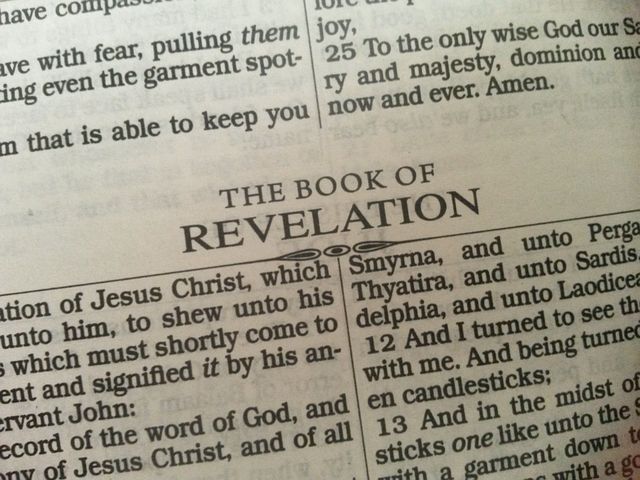A. WHY?
Why should we study the book of Revelation? I am writing this Outline February 20, 1962, a day long to be remembered because on it our country finally succeeded in putting a man into orbit. We are living in the spaceage. In the opinion of many this is wonderful. But wonderful or not, it is in a very real sense a dangerous age, an age of scientific progress accompanied by spiritual decline!
The perils of the present and the prospects of the future in such a world as this fill the heart with fear. How comforting it is, therefore, that we have not been left without light in the darkness. When an anxious voice within cries out, “What of the future?” the answer is, “Search the Word, that is, the infallible Bible.”
We should, of course, study the entire Bible. Those who limit themselves to the Apocalypse (or “Unveiling,” another name for the book of Revelation) commit a tragic error, for the only way to understand the last book of the Bible is to interpret it in the light of all that precedes. Nevertheless, it is true that it is especially in the last book that the great drama of history is unfolded and the victory assured.
Briefly, we would therefore summarize the purpose of studying the book of Revelation as follow. We should study it:
1. Because it provides comfort for the heart, since its theme is: The Victory of Christ and of his Church over Satan and his Allies.
2. Because it enables our mind, after diligent study, to answer the errors of infidelity and of sectarianism. (The sects, as you probably know, are constantly using this book in order to try to prove their misleading doctrines.)
3. Because this comfort for the heart and this illumination of the mind will result in the glorification of our God.
B. HOW?
Just how shall we study Revelation? My answer is as follows :
1. First of all, study the portion of Scripture that accompanies the Outline. For the present double Outline I suggest that you read the entire book of Revelation for yourself at home. If you have the time, read it through twice, and jot down your reactions. What are the various subjects discussed in it? For your Bible-reading I would suggest that you make use of both the American Standard Version and the Berkeley Version.
2. Secondly, make good use of a Bible-map, especially for chapters 2 and 3, so that you can locate the seven churches of Asia Minor to which, in a special sense, this book is addressed.
3. Thirdly, read and reread the Outline. Try to answer the questions at the end of it. For this purpose I also advise you to:
4. Fourthly, make good use of representative Commentaries on the book of Revelation. (As I shall say more about this under the next heading, I shall not go into it now.)

Questions
1. Prove that the Victory of Christ and of his Church over Satan and his Allies is really the theme of the book of Revelation.
2. There are those who maintain that after Revelation 4:1, “Come up hither,” the Church has “gone up,” and that, accordingly, almost the entire book of Revelation, all that follows Revelation 4:1, has to do not with the Church but with the Jews and their enemies. Is that view correct?
3. Is not the study of the last book of the Bible impractical?
4. Would you say that the teachings of this book refer to the future and not to the present?
5. What “John” (Revelation 1:9) was it who wrote the book, and when was it written? Under what circumstances?
6. Since this book of Revelation is full of comfort, how can you—either individually or as a group— get more people to enjoy these lessons with you?
7. Why is it important to read Scripture first of all, before you try to answer the questions contained in the Outline?
